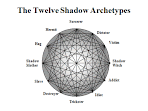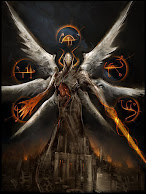https://onepieceastrology.blogspot.com/?m=1In this blog, we'll explore some of the key principles of interpreting mythology, and how they can help us to unlock the deeper meanings and messages hidden within these ancient stories.
The Principles of Interpretation
Interpreting mythology is not a straightforward process, as myths can have multiple layers of meaning and can be interpreted in a variety of ways. However, there are some key principles that can help us to make sense of these complex stories and understand their significance for our lives today.
- Context: The first principle of interpreting mythology is to understand the historical and cultural context in which the myth was created. This includes understanding the social, political, and economic conditions of the time, as well as the religious and philosophical beliefs of the culture that produced the myth.
Archetypes: Myths often feature archetypal characters and situations that represent universal human experiences and emotions. These archetypes, such as the hero, the trickster, and the wise old man, can help us to understand our own struggles and challenges, and provide insight into the human condition.
Mythic Patterns: Myths often contain patterns and themes that are repeated across cultures and time periods. These patterns, such as the hero's journey, the creation myth, and the flood myth, can help us to understand the common threads that connect us all as human beings.
Applying Interpretation to Mythology
Once we understand these principles of interpreting mythology, we can begin to apply them to specific myths and stories in order to uncover their deeper meanings and messages. Here are a few examples of how this might work:
The story of Pandora's box: On the surface, the story of Pandora's box is a cautionary tale about the dangers of curiosity and disobedience. However, on a deeper level, it can be interpreted as a commentary on the role of women in ancient Greek society, and the fear that men had of female sexuality and power.
The story of Gilgamesh: The epic of Gilgamesh is often interpreted as a story about the search for immortality, and the human desire to transcend death. However, it can also be seen as a story about the importance of human connection and friendship, and the realization that even the most powerful and accomplished individuals cannot achieve everything on their own.
The story of Krishna and Arjuna: The Bhagavad Gita tells the story of Krishna, the god of love and compassion, who teaches the warrior Arjuna about the importance of duty and sacrifice. On a deeper level, this story can be interpreted as a commentary on the struggle between good and evil, and the need for individuals to make difficult choices in order to do what is right.
Conclusion
In conclusion, interpreting mythology is a complex and multifaceted process that requires an understanding of historical context, symbolism, archetypes, and mythic patterns. By applying these principles to specific myths and stories, we can uncover the deeper meanings and messages hidden within these ancient tales, and apply them to our own lives in a way that is meaningful and relevant. Whether you are a student of history, literature,






